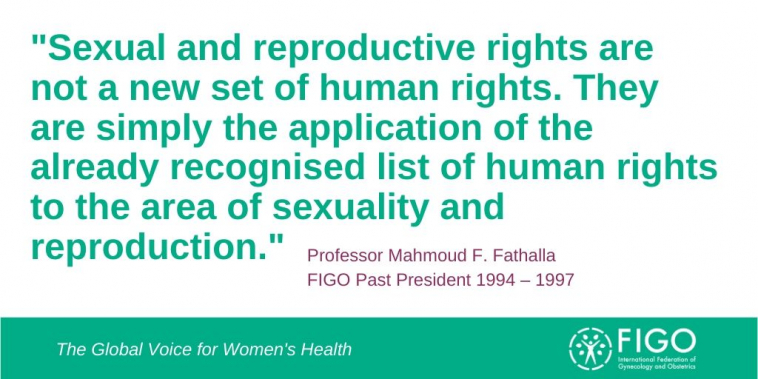Women's rights are human rights (2004)

Human rights have been in the hearts of many people throughout history. But we can feel proud to belong to the first generation that dared to imagine a world where all people enjoy their human rights, to declare that all human beings are born free and equal in dignity and rights, and to take action to help make it happen.
Under international human rights agreements, states are required to:
- Respect rights, by refraining from interfering directly or indirectly with the enjoyment of the right
- Protect rights, by taking measures to prevent third parties from interfering with people’s enjoyment of their rights
- Fulfil rights, by adopting appropriate legislative, administrative, budgetary, judicial, promotional and other measures towards the full realisation of the right.
Violations of human rights can occur ‘by omission’ when State parties fail to protect the human rights of their citizens or fail to provide the necessary measures to enable people to enjoy their rights.
Reproductive rights are human rights
Sexual and reproductive rights are not a new set of human rights. They are simply the application of the already recognised list of human rights to the area of sexuality and reproduction.
The Cairo International Conference on Population and development (ICPD) in 1994 was a landmark, making an explicit international commitment for reproductive rights. In 1997 the International Planned Parenthood Federation developed a charter listing 12 sexual and reproductive rights.
Every person has the right to:
- life
- liberty and security of the person
- equality, and to be free from all forms of discrimination
- privacy
- freedom of thought
- information and education
- choose whether or not to marry and to found and plan a family
- decide whether or when to have children
- health care and health protection
- benefits of scientific progress
- freedom of assembly and political participation
- live free from torture and ill treatment.
Reproductive subordination is a violation of the right to liberty and security of person
Article 9(1) of the International Covenant on Civil and Political Rights states that “Everyone has the right to liberty and security of person". Article 16(1) of the Convention on the Elimination of All Forms of Discrimination Against Women expanded on the interpretation of this right, stating that "States parties...in particular shall ensure, on a basis of equality of men and women... (e) The same rights to decide freely and responsibly on the number and spacing of their children and to have access to the information, education and means to enable them to exercise these rights."
Coerced contraception and coerced motherhood deny women the dignity of making a free, informed choice in their lives. Coerced motherhood is much more pervasive. Women are coerced into motherhood when they are denied access to family planning, are forced to keep unwanted pregnancies, or are denied any other choice in life except childbearing and child rearing.
Violence against women is a violation of the right not to be subjected to inhuman or degrading treatment
The International Covenant on Civil and Political Rights Article 7 dictates that "No one shall be subjected to torture or to cruel, inhuman or degrading treatment or punishment". The State and the international community often fail in the obligation to protect women from third party violations of this right.
One example of this is the harmful practice of female genital mutilation (FGM). Usually involving clitoridectomy, FGM is a harmful and irreversible procedure with no health benefit, performed on a minor who cannot give informed consent. Estimates of the worldwide prevalence of the practice ranges from 85 to 114 million girls, who are denied the human right of security and integrity of their bodies.
Gender-based violence, endemic in almost every society, is another example of an instance in which states fail to protect women from violations of their right not to be subjected to inhuman or degrading treatment. The UN Human Rights Committee, in assessing compliance with this right demanded "information on national laws and practices with regard to domestic and other types of violence against women, including rape". (Comment 28.)
Maternal mortality is a violation of women’s right to life
The tragedy of maternal mortality is a glaring example of when rights are not fulfilled. In 2000, over 500,000 women died as a result of complications arising from pregnancy and childbirth, almost all of them in Asia or Africa.
As stated by the Director-General of WHO in 1998, “the interventions that make motherhood safe are known and the resources needed are obtainable; the necessary services are neither sophisticated nor very expensive.”
The International Covenant on Civil and Political Rights Article 6(1) sets the fundamental principle that "every human being has the inherent right to life". The UN Human Rights Committee required that "when reporting on the right to life protected by article 6, States Parties should provide data on… pregnancy and childbirth-related deaths of women…" (Comment 28.)
Women have a right, a basic human right, to be protected when they become pregnant and give birth. Society has an obligation to fulfil a woman’s right to life.
Women’s rights are human rights
The profession of obstetrics and gynaecology is rising up to its social responsibility. In 2003, FIGO’s General Assembly called upon all members of the profession to stand for women's sexual and reproductive rights in their countries and to respect and protect women's rights in their daily practice.
This article is an edited version of the MacArthur Fifth International Distinguished Lecture on Population Issues delivered by Prof. Mahmoud F. Fathalla, FIGO Past President (1994 – 1997) at the National Reproductive Health Summit, Abuja, Nigeria.